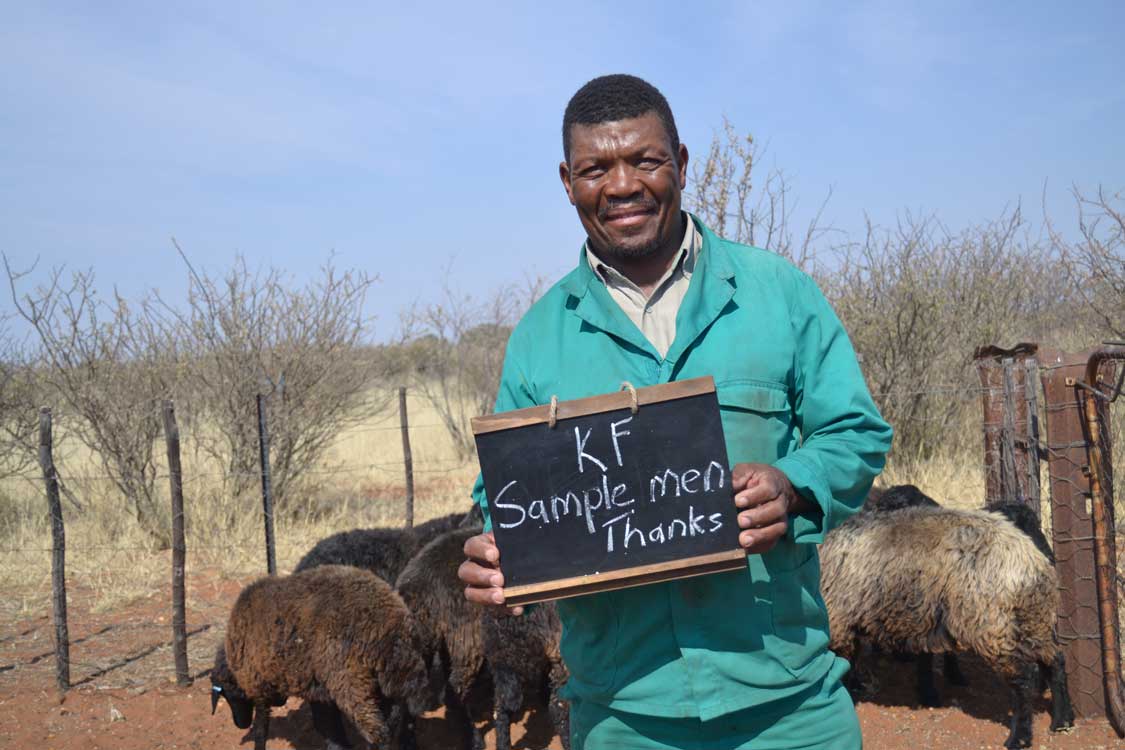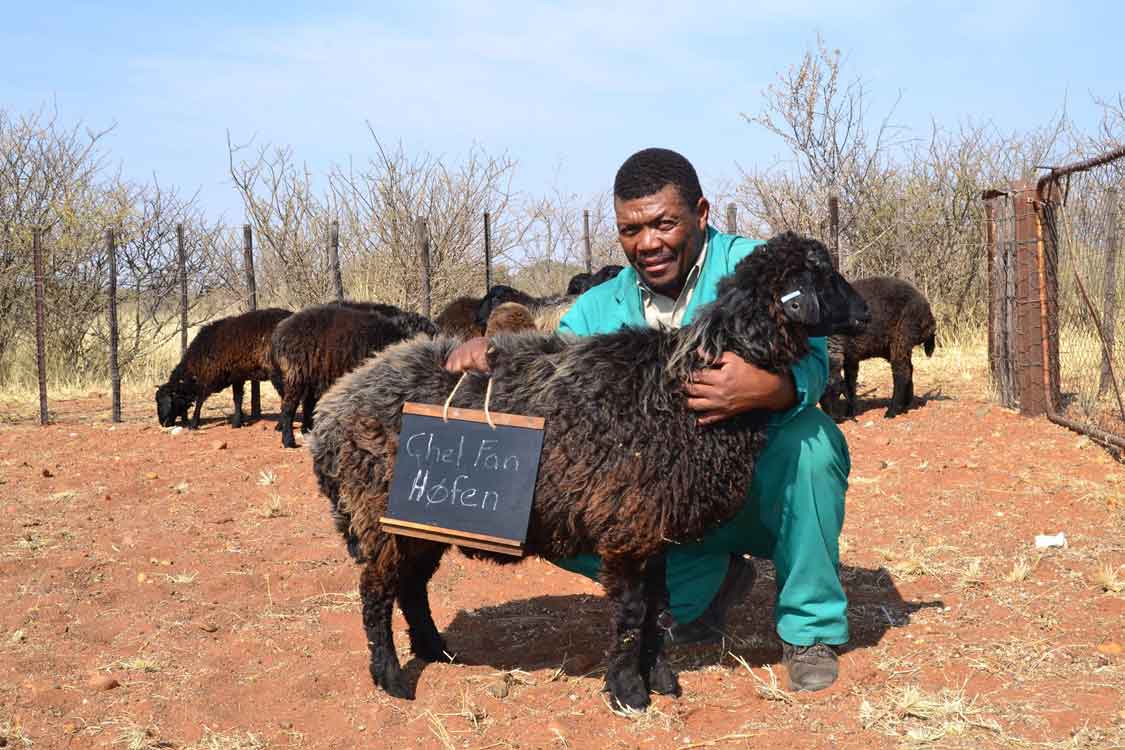Kopenhagen Fur’s samplemen contribute to Namibia
For many years, Kopenhagen Fur’s Kindergarten Project has helped many children in Katutura with reading, maths and a daily meal. But now, Kopenhagen Fur’s samplemen have also taken on the mantle of assisting Namibia by focusing on farmers.
The Kopenhagen Fur Samplemen Swakara Project aims to contribute towards the development of Namibia by giving swakara farm workers the opportunity to own their own swakara sheep and thus become pelt producers themselves. This process will help alleviate poverty while at the same time stimulating Swakara pelt production in Namibia.
Johannes Aron Nu-Ganeb, the first beneficiary of the project has been awarded 10 ewes and a small management fee for vaccines and fodder to the value of N$14 000. He has been involved in swakara farming for over 20 years and has been with his current employer at Farm Tivoli since 1997.
Johannes Aron Nu-Ganeb has nothing but praise for his employer for allowing him to keep his sheep on the farm and for assisting him with his application.
- I am truly honoured to be a beneficiary of this great initiative and I would like to thank all Swakara samplemen at Kopenhagen Fur who supported me and made this possible. May the Lord bless you for this wonderful gesture, he said.
The project places primary focus on farm workers who are allowed to keep some livestock on the farms where they work. Furthermore, with the support of this initiative, farm workers will generate extra income to supplement their wages.
Benefits all parties
The custodian of the project in Namibia is Agra Swakara Services. This division is also responsible for managing the Pelt Sorting Centre in Windhoek, collecting, sorting and marketing these precious and globally sought-after pelts as well as being actively involved in the selling of breeding stock, either by auction or through its stocklink services.
Reflecting on the aims of the initiative, Jaco Van Zyl, Agra’s Technical Advisor for Swakara Production said:
- The project will positively contribute towards creating new swakara farmers and, in the process, alleviate poverty in our community. The uniqueness of this project lies in the fact that the farm worker will keep his sheep in the same flock as the farm owner’s thus benefiting from all the farmers’ knowledge and skills, while the farmer will benefit from a farm worker’s going the extra mile as an employee, as he has a direct interest in the performance of the flock.
The farmers on board this idea are willing to further assist their workers by allowing them to use their rams, veterinary medicine and grazing. Additionally, they also want to encourage their farm workers by promoting a favourable employee atmosphere and retain lower staff turnover.
The second farm worker to benefit from this project has already been identified and the handover is scheduled for later this year.


